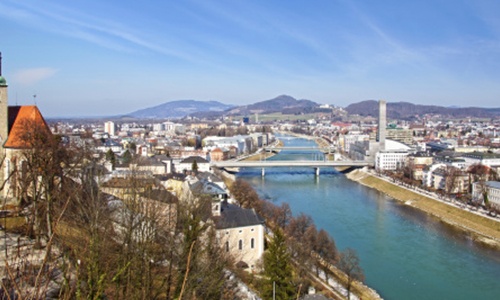
Salzburg, Austria
Salzburg is the most economically active federal state after Vienna which, being the federal capital, enjoys a special status and takes up a leading position in value creation, tax revenues, employment and low unemployment – among the Austrian federal states but also internationally. Salzburg acts as the economic hub of Europe and is ranked among the most economically dynamic regions in Europe. Furthermore, the federal state capital is Austria’s trade fair and automobile metropolis. For example the Salzburger Porsche Holding was Austria’s most profitable enterprise with a recent turnover of just under 13 billion Euro. Most car importers have their registered office in Salzburg. Thousands of jobs are created by companies like Porsche, Mercedes, BMW, Suzuki and Jaguar. Europe’s point of intersection is the ideal location for the internationally operating transport and logistics companies which have settled here. For more than 35 years Salzburg’s exhibition centre has been the most successful trade fair centre in Austria. As an investment location Land Salzburg holds a constantly high position in the European ranking. Assessments carried out by international institutions have repeatedly confirmed Salzburg’s quality as a business location. Salzburg’s economic performance amounts to approximately 20 billion Euro a year. The strong economic performance has a direct effect on employment statistics. Salzburg and Upper Austria have the lowest unemployment rates of all Austrian federal states, which are also much lower than the national average.






